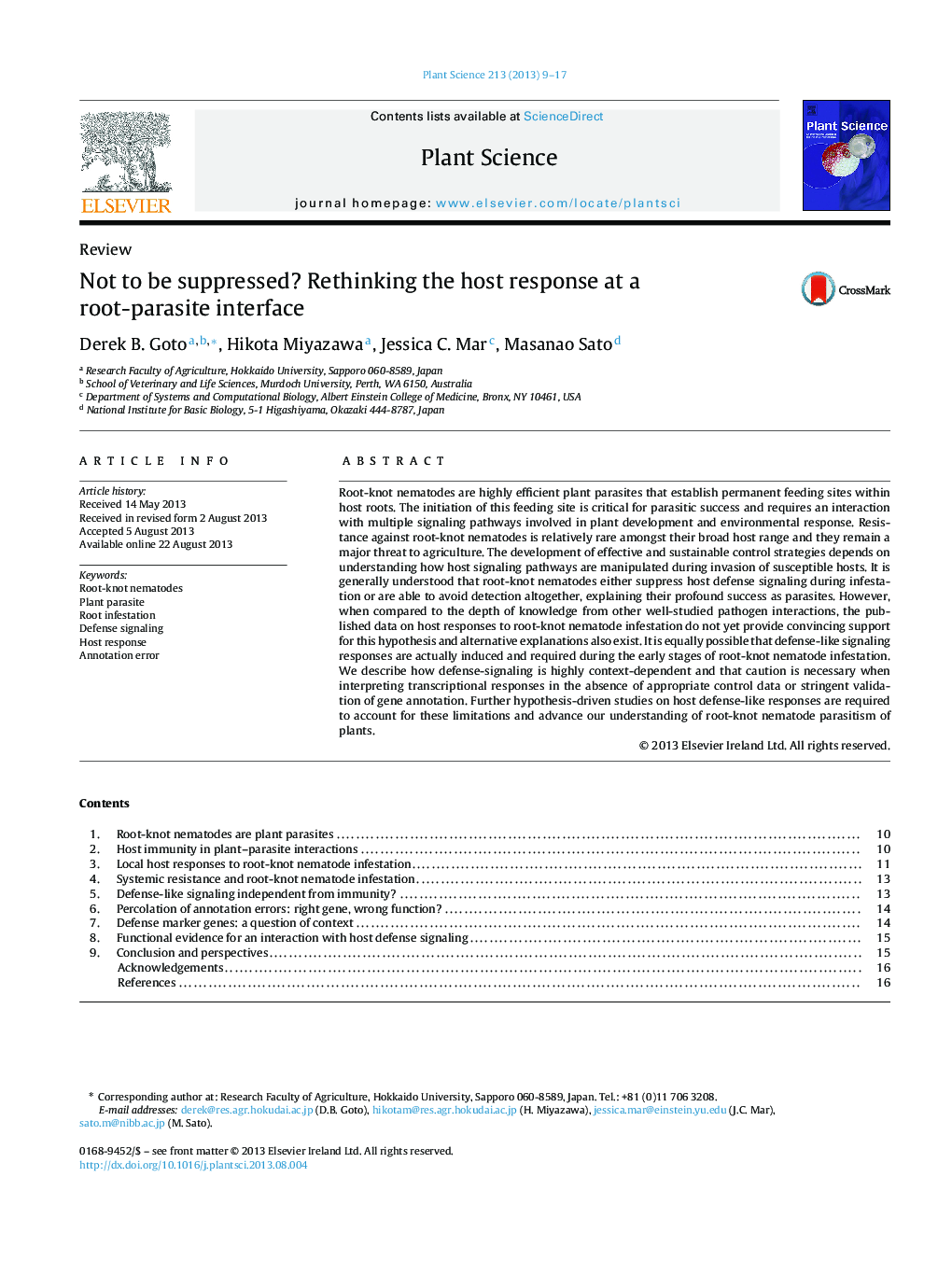| کد مقاله | کد نشریه | سال انتشار | مقاله انگلیسی | نسخه تمام متن |
|---|---|---|---|---|
| 2017096 | 1542072 | 2013 | 9 صفحه PDF | دانلود رایگان |

• Root-knot nematode parasites establish permanent feeding sites inside plant roots.
• Invasion is thought to involve suppression of host defense signaling responses.
• Limitations exist in current data and alternative explanations need to be explored.
• Some root-biotic interactions actually require an intact defense-like signaling.
• Root-knot nematode infestation may depend on non-defense functions of such pathways.
Root-knot nematodes are highly efficient plant parasites that establish permanent feeding sites within host roots. The initiation of this feeding site is critical for parasitic success and requires an interaction with multiple signaling pathways involved in plant development and environmental response. Resistance against root-knot nematodes is relatively rare amongst their broad host range and they remain a major threat to agriculture. The development of effective and sustainable control strategies depends on understanding how host signaling pathways are manipulated during invasion of susceptible hosts. It is generally understood that root-knot nematodes either suppress host defense signaling during infestation or are able to avoid detection altogether, explaining their profound success as parasites. However, when compared to the depth of knowledge from other well-studied pathogen interactions, the published data on host responses to root-knot nematode infestation do not yet provide convincing support for this hypothesis and alternative explanations also exist. It is equally possible that defense-like signaling responses are actually induced and required during the early stages of root-knot nematode infestation. We describe how defense-signaling is highly context-dependent and that caution is necessary when interpreting transcriptional responses in the absence of appropriate control data or stringent validation of gene annotation. Further hypothesis-driven studies on host defense-like responses are required to account for these limitations and advance our understanding of root-knot nematode parasitism of plants.
Journal: Plant Science - Volume 213, December 2013, Pages 9–17